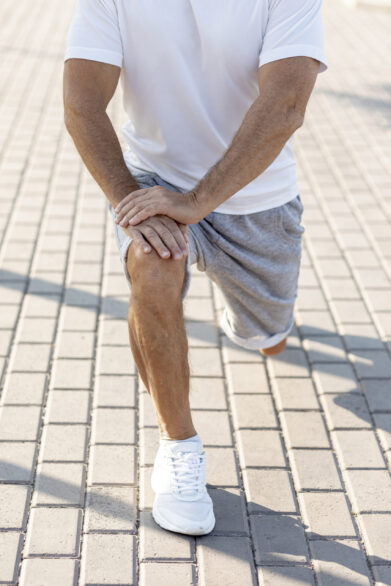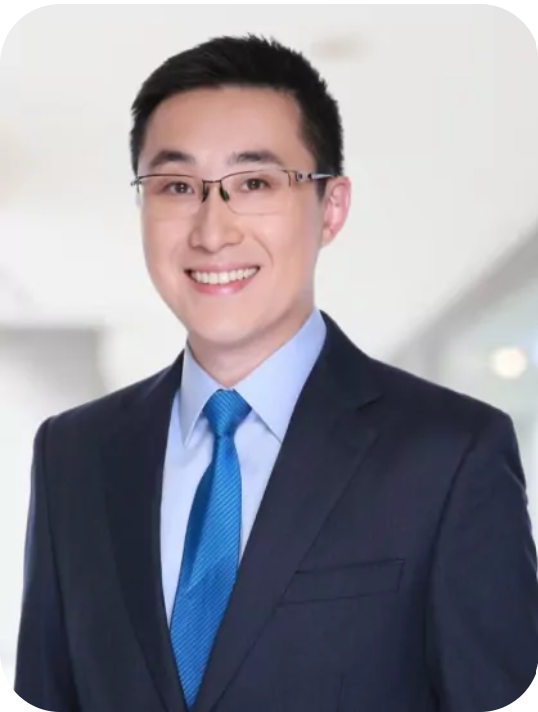14 July 2025
2:00 PM to 4:00 PM
46 Tras Street
Singapore 078985
SGD$30
Registration closes on 8 July 2025, or when all spots are filled, whichever comes first.
Limited Spots Available!
This exclusive professional development seminar is limited to a small group, with only 10 spots available.
Effective rehabilitation following surgery is essential for optimizing recovery and restoring function. Physiotherapists play a crucial role in guiding patients through the healing process by addressing pain management, mobility restoration, and strength rebuilding. This synopsis highlights key principles of postoperative care, including progressive exercise strategies, joint protection techniques, and evidence-based approaches to neuromuscular re-education. By tailoring rehabilitation programs to individual needs, physiotherapists can support patients in achieving long-term mobility and functional independence.

Look at it this way. When you head to the hospital for shooting arm pain, the immediate course of action is to check your heart, not your arm. The symptoms down your arm are just a result of a problem elsewhere in the body. Similarly, the SFMA focuses on underlying dysfunctional movement to find the cause of pain, not just the source. This concept is better known as regional interdependence – how seemingly unrelated problems are actually driving the dysfunction.
What makes SFMA unique? We are the first organized system that takes into account altered motor control – the inability to coordinate proper movements. This system allows us to identify the correct problems – mobility versus motor control – to best equip clinicians for a successful outcome.
There are many great mobility treatment systems, but in the SFMA, we introduce you to our methodology on reprogramming motor control. We use the neurodevelopmental perspective – the way we learn to move as infants – to create a system to reteach our brains how to communicate with our bodies.
When you leave this course, you will be armed with a repeatable diagnostic system to apply the manual techniques already in your toolbox, as well as now add a motor control component tool. The primary focus of Level 1 is to empower participants to not only gain experience with the assessment, but also to develop confidence to successfully integrate the system into their clinical practice.
Who should attend: Physiotherapists, Osteopaths, Chiropractors, Rehabilitation Therapists (with relevant professional degrees), Medical Doctors and Physiotherapy Students.

Dr Dennis Ng Zhaowen is a Senior Consultant Orthopaedic Surgeon with main interest in Sports, Shoulder and Knee conditions, with extensive experience treating professional athletes.
He was the Deputy Head of the Shoulder & Elbow Division and Sports Knee Division in National University Hospital before moving on to private practice.
Common conditions that he treats include frozen shoulder, rotator cuff tears, shoulder impingement, shoulder dislocation and instability, shoulder arthritis, upper limb fractures, tennis elbow, as well as knee conditions such as knee cartilage injury, ligament tears (ACL), meniscus tears and knee arthritis.
Minimally invasive techniques are used for better surgical outcomes and reduced downtime. Patients include national athletes for sports such as basketball, soccer, judo, rugby, rock climbing and cycling etc.
Dr Dennis Ng Zhaowen received the Gold Medal Award for being the top candidate in the Fellowship of the Royal College of Surgeons Examination (FRCSEd Orth). He was also awarded the Human Manpower Development Plan scholarship from the Ministry of Health and underwent subspecialty training at the esteemed Fowler Kennedy Sports Medicine Clinic, Ontario, Canada. He has extensive experience with the management of sports injuries, having treated professional athletes in North America.
As a firm believer in the training of younger surgeons, Dr Ng was a Core Faculty for the NUH Residency Program, and part of the Organising Committee for the National Shoulder and Knee Arthroscopy Course. He was conferred the title of Assistant Professor by the National University of Singapore and was also appointed to various positions at the institution. These included Patient Safety Officer, and Clinical Documentation and DRG Coding Clinician Champion.
He was also responsible for supervising and mentoring residents posted to the Department of Orthopaedic Surgery, NUH. In May 2018, he was the Co-Convenor for the Joint Specialty Fellowship Examination in Orthopaedic Surgery. Besides postgraduate teaching, Dr Ng was also involved with undergraduate teaching in clinics and tutorial sessions. He was the Convenor for AY17/18 – 3rd Professional MBBS Examinations and was regularly involved as an invigilator for the MBBS Phase III and V examinations.
Besides his clinical duties, Dr Dennis Ng has also contributed to the scientific literature of Orthopaedic Surgery with published papers and abstracts presented at local and international medical conferences.
Registration and Payment: Registration is on a first-come, first-served basis. Submission of the registration form does not guarantee a place in the course. Payment must be received by the due date prior to attending the training. Further payment instructions will be provided after submission of the registration form.
Confirmation: Registration is confirmed upon receipt of payment or issuance of an invoice.
Cancellation: No refunds will be provided for participant cancellations, including medical leave.
Event Cancellation: Payment does not guarantee that the event will proceed as planned. If the event is cancelled, a full refund will be issued to all registered participants. No additional claims will be accepted.
